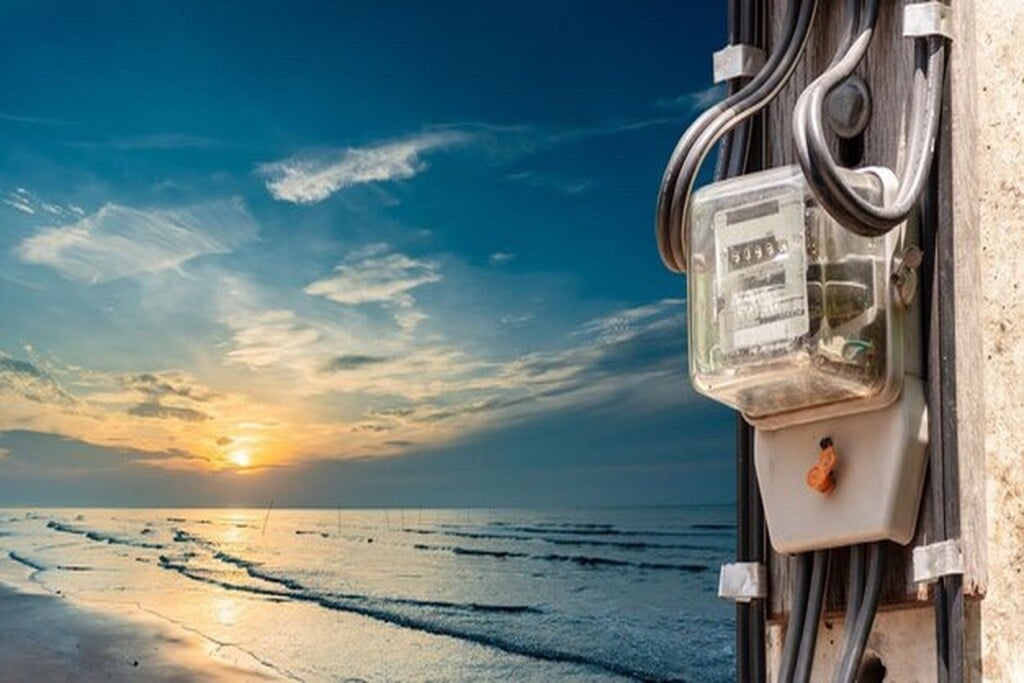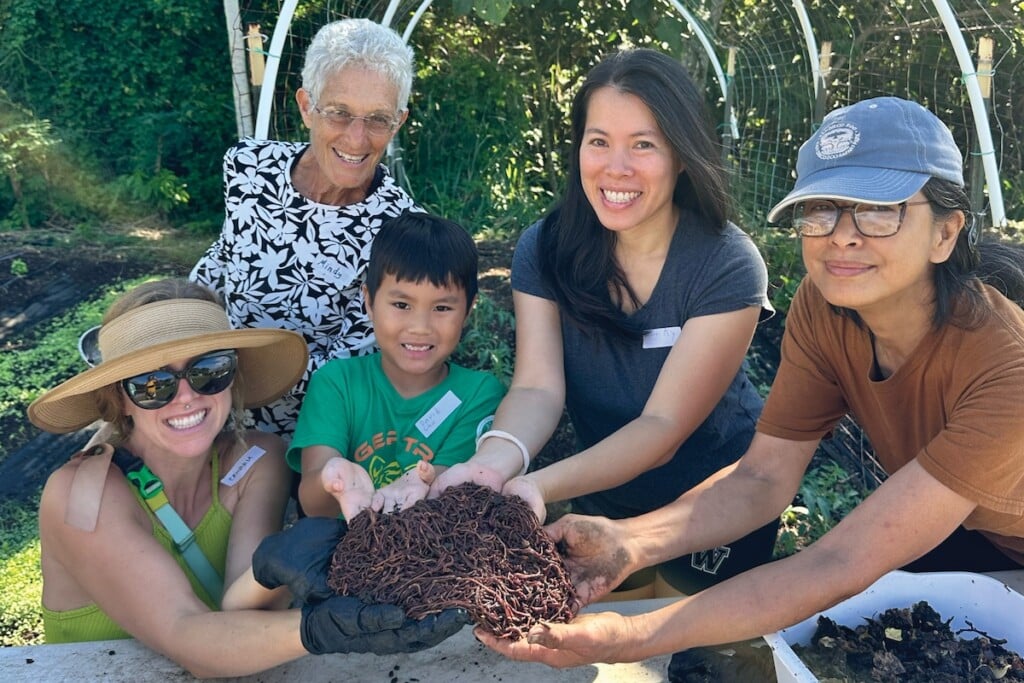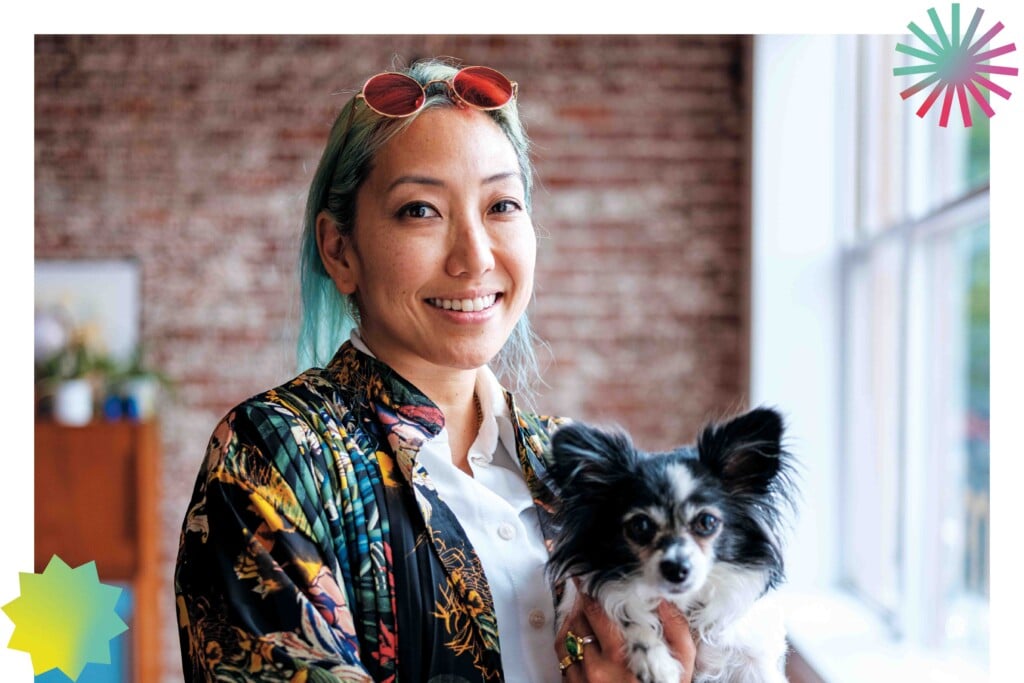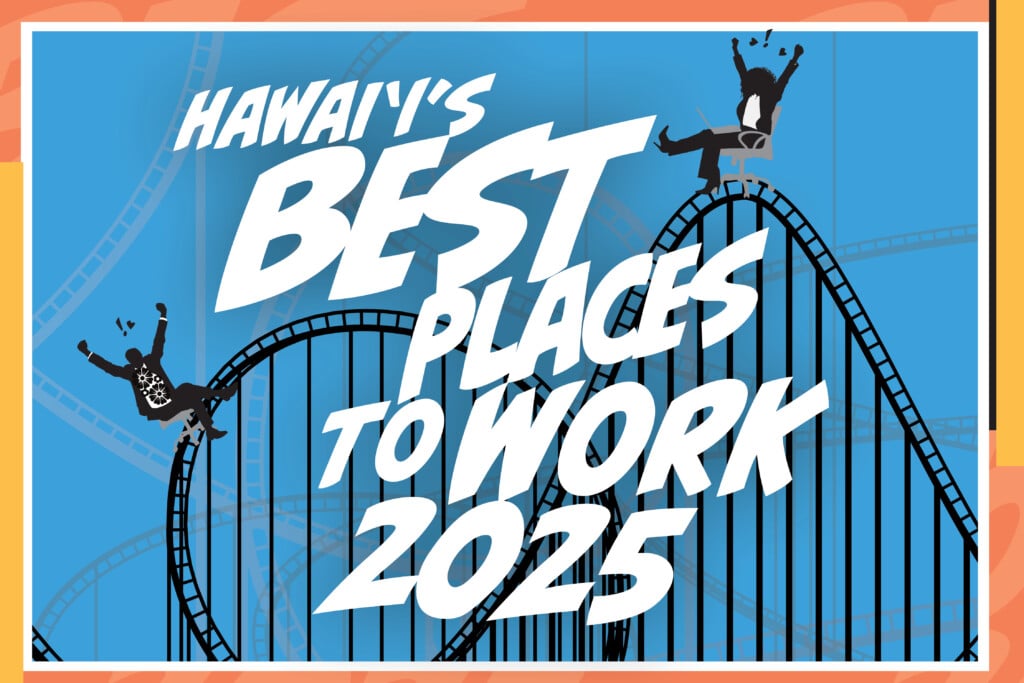Meet the Sustainability Entrepreneurs Putting Hawai‘i Refill Stores on the Map
141 million tons of plastic packaging are produced globally each year. These local refill storefronts offer a low-waste solution.
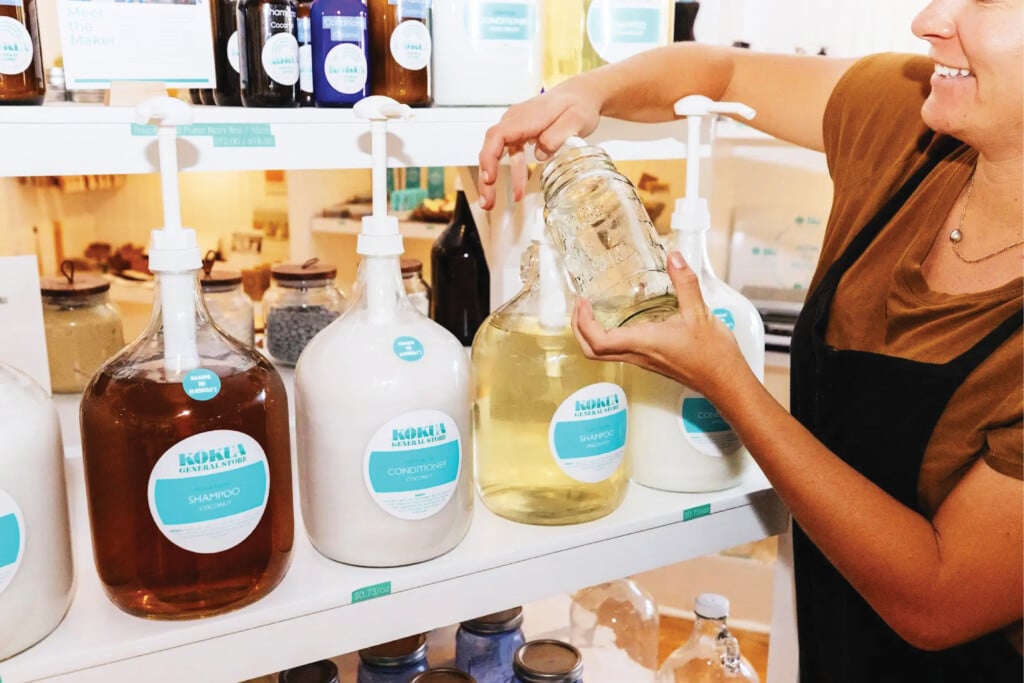
Letter from President and CEO Alicia Moy
As an essential gas energy provider to communities across the state, our kuleana to our island home guides every decision we make. We are deeply aware of the urgent challenges posed by climate change, and of the equally great need to innovate and advance our clean energy strategy while maintaining reliability and affordability.
For generations, Hawai‘i Gas has approached energy differently. Our predecessors brought forward-thinking technologies to Hawai‘i, delivering safe, reliable, and cleaner energy to homes and businesses. We’ve taken bold steps to decarbonize our fuel mix, pioneering efforts in decarbonizing with hydrogen and renewable natural gas, and continue to develop and invest in local renewable energy projects to reduce our state’s reliance on imported oil. Today, we hold ourselves to the highest standards of transparency, accountability, operational excellence, and are committed to helping the state meet its climate goals while providing affordable, resilient energy solutions.
While the path ahead presents challenges, it also brings extraordinary opportunity. We stand alongside community partners and organizations who share the same commitment to innovation in their fields and putting the needs of our local communities first. Their work inspires us and reinforces the importance of collaboration in building a resilient, sustainable Hawai‘i, for tomorrow and generations to come.
Alicia Moy
President and CEO
To learn more about Hawaii Gas, visit hawaiigas.com.
━━
Beyond Hawai‘i’s sun-soaked beaches and breathtaking views, an enormous blob of plastic and other debris floats in the Pacific Ocean a few hundred miles northeast of the island chain.
The Great Pacific Garbage Patch, as it’s known among oceanographers and environmentalists, covers an area roughly 618,000 square miles, or about twice the size of Texas.
The result of decades of indiscriminate waste disposal by nations on all sides of the Pacific Ocean, this floating sea monster collects new particles delivered on the swirl of currents that carry debris on journeys thousands of miles.
Due to Hawai‘i’s proximity to the western edge of the Great Pacific Garbage Patch and homegrown waste, the Hawai‘i Wildlife Fund estimates that 15-20 tons of marine trash wash up on state shores every year, 96% of which is made from plastic materials.
Amidst the global plastic pollution crisis, Hawai‘i’s sustainably driven business entrepreneurs are finding creative ways to reduce the amount of plastics that end up in garbage piles on land or among floating islands at sea.
The success of their sustainable business model relies on awareness and education.
“Now we’re realizing, as we started doing a lot more education in schools and working with businesses, that the awareness is there and people are starved for solutions,” says Rafael Bergstrom, executive director of the nonprofit Sustainable Coastlines Hawaii.
According to Bergstrom, community pressure is rising, particularly around plastic, and people are responding.
One solution gaining traction online and in communities is a more circular approach to resource use, known as zero waste.
The aim of the zero waste movement is the conservation of all resources through responsible production, consumption, reuse, and recovery of products, packaging and materials, according to the Zero Waste International Alliance.
Much like Sustainable Coastlines Hawaii’s hands-on, community-driven approach to cleanups and education, Bergstrom believes sustainability efforts don’t have to feel daunting or discouraging.
“Zero waste is aspirational,” Bergstrom says. “It’s not going to happen tomorrow, but if it’s on your mind, if you’re thinking about it, it’s going to start being ingrained in the practices that you use as a business [or consumer] that will make its way through the community.”
According to Refillery Collective, a community and platform of support for businesses focusing on sustainability and reducing waste across the U.S. and Canada, only 9% of plastics were recycled in 2018, a figure that is now closer to 5%.
Due to the various pumps and sprayers for household products, plastic containers are often unrecyclable. Photodegradation, the process where UV radiation breaks down plastic, causes plastic waste to fragment, but it never fully disappears.
Refill stores aim to support an eco-friendly lifestyle by supplying everyday essentials without packaging. Customers bring an empty container to be weighed and filled with personal care, cleaning and grocery products, reducing the demand for single-use plastic containers.
According to the Refillery Collective Directory, there are 416 brick-and-mortar refill storefronts across the United States. Hawai‘i is home to seven, with two located on O‘ahu, two on Maui, two on the Island of Hawai‘i and one on Kaua‘i.
PROTEA THRIFT (KAILUA, O‘AHU)

Lori Mallini, founder of Protea Thrift, offers a more eco-conscious way to shop. Photo courtesy of Protea Thrift.
Protea Zero Waste was Hawai‘i’s first refill and zero-waste store, launched in June 2020. As of January, the store has transitioned its business scope to Protea Thrift, a secondhand thrift boutique committed to reducing waste while providing an affordable, eco-friendly shopping experience.
Founder Lori Mallini said the zero-waste store was a success in every single way, except financially. Due to high shipping costs, limited local supply, competitive affordable pricing and the additional labor that comes with a refill store, the profit margins were too thin to sustain a small business.
“Within the past five years, there’s been a boom of refill stores and sustainability efforts,” Mallini says. “Granted, a lot are having to close because the numbers are very hard to hit, [but if you] figure out how to make it financially work, there is a need [for these stores] out there.”
During its 4.5 years as a refill business, Protea Zero Waste prevented more than 65,000 bottles from going into the landfill.
After shifting focus to the issue of fashion waste, Protea Thrift has prevented about 15,000 lbs of clothes from being discarded by selectively choosing, and paying cash for women’s, men’s and children’s clothing commonly re-sold between $20 and $70.
Beyond its role in waste diversion, Mallini measures the success of her business by the community built around sustainable values.
“Protea Zero Waste planted a lot of seeds in a lot of people’s lives to be more sustainable and be mindful of their consumption,” she says. “I’ve had hundreds of customers [tell me] their lives have been changed through the things that they have learned at my store or the practices that they have implemented.”
Says Mallini: If you give people the opportunity to make better environmental decisions, they want to do better.
KŌKUA GENERAL STORE (HALE‘IWA, O‘AHU)

Kōkua General Store, a low-waste lifestyle and refill shop, is a social enterprise of the Kōkua Hawai‘i Foundation. Photo courtesy of Kōkua General Store.
Another refill and low-waste lifestyle shop that defines success through sustainability-focused community engagement is Kōkua General Store.
According to Sara McGuigan, director of Social Enterprise at Kōkua Hawai’i Foundation, the storefront opened in April 2022 as one of three social enterprises designed to support Kōkua Hawai‘i Foundation’s programs.
“Many times, we get people that are stumbling in there, whether it’s tourists or locals, and it’s their first touch point with Kōkua Hawai‘i Foundation,” McGuigan says. “It’s been a good way to talk about our foundation, our mission, and try to inspire healthy lifestyle and behavior change.”
For McGuigan, a sustainable lifestyle doesn’t have to mean going completely plastic-free. In fact, she encourages her staff and customers to start by picking one thing to focus on.
“Zero waste [comes with] a lot of pressure, [but] is that realistic?” McGuigan says. “At our bulk refill bar, you could refill on detergent, you could refill on body wash. All those things are going to save plastic, just getting started somewhere.”
To combat the financial difficulty of maintaining a low-waste store, McGuigan considers their key to success to be the diversity of products they offer to supplement the refill bar, such as vintage and upcycled clothing, books, records, and low-waste lifestyle products and reusables.
According to McGuigan, Kōkua General Store’s bulk refill bar relies on product sourcing from more than a hundred vendors, each collaboration designed to prioritize sustainability. Local sourcing remains a priority, but the limited availability of bulk goods on the islands means the store works with just 30 local vendors.
“Our body washes, hand soaps and soap bars are from the North Shore Soap Factory just up the street from us,” McGuigan says. “We drop off a bucket, they fill it and they bring it back. It’s the same [process] with Puna Noni, where we do our shampoos, conditioners, lotions and hand soaps.”
As for mainland-based partnerships, shipping practices are tailored by each vendor to minimize environmental impact. In some cases, that requires innovative solutions like hand-mixing products from a concentrate.
“For one of our laundry detergents and our dish soap, we’ve worked with them to have them send us a concentrate, [which] saves on shipping, saves on the footprint and we’re still able to carry their product,” she says.
Sourcing partnerships are never an exact science, but ongoing collaborations that aim to find the most sustainable solution possible, according to McGuigan. Such attention to detail helps explain why zero-waste storefronts remain rare in communities across the state and country.
“I do think it takes extra effort, and I see why businesses don’t do it,” she says. “It generally requires more cleanup, more engagement and just slower processes. We definitely have to hire people who care about doing this type of work.”
KEEP IT SIMPLE (KAIMUKĪ, O‘AHU)

KEEP IT SIMPLE COOWNERS JILLIAN DEOLINDO (LEFT) AND HUNTER LONG (RIGHT) REDUCE SINGLE-USE PLASTIC ONE REFILL AT A TIME. PHOTO COURTESY OF KEEP IT SIMPLE.
For co-founders Hunter Long and Jillian Deolindo, making business decisions while staying true to their sustainable values is a careful, collaborative process.
Since Keep It Simple opened its doors in December 2020, their leadership has been driven by its team’s passion for sustainability at the forefront. However, the store has become much more than a refill room as the demand for financial stability intensified.
“We started the store just as the refill room, and we quickly realized that that wasn’t going to support itself,” Long said. “Soap is very inexpensive, so we would have to sell such a big volume of soap to be able to survive.”
Keep It Simple’s selection of bikinis, apparel, sustainable home goods and Swedish candy not only supports the refill station but is often what draws people in, creating an entry point for the community to engage with sustainability.
“They love our brand, they’ve seen it on the internet and they want to come see the Swedish candy, or they want to come shop the bikinis and then they see the refill room,” Long says. “People don’t like to change their habits, necessarily, so it’s a less threatening, more fun way to introduce yourself to that kind of thing.”
Wanting a way to shop without contributing to plastic pollution and having seen refill stores overseas, Long and Deolindo launched their sustainable storefront in Honolulu. Their mission is to be a zero-waste source, with hopes of igniting change that feels fun and exciting.
Now, almost five years into business, the entrepreneurial pair have not purchased a single-use plastic bottle for their home since. Keep It Simple has refilled more than 75,000 bottles, enough to cover a year’s shampoo supply for more than 6,000 people.
Deolindo says one of the biggest misconceptions about sustainable shopping is the assumption that it costs more. With prices similar to those at Target, customers often return to refill after discovering how affordable it is.
As a small business that uses all-natural products, remaining as affordable as possible is always a priority. A standard 16-oz dish soap refill at their store costs $5.60, a price nearly comparable to a leading Target brand, Mrs. Meyer’s, which sells for $4.99.
According to Long and Deolindo, their product is sourced from a small business in the Midwest as a concentrated formula shipped in barrels, which they then mix locally.
“People can bring in any new or old bottle they want, or they can get a new bottle with us,” Deolindo says. “They fill it up, and then just pay per ounce. Each barrel probably does 500 bottles. The barrel still is plastic, but it’s diverting so many more plastic bottles, since you’re bringing your same one back over and over again.”
Balancing mass shipping quantity, local mixing, maintaining affordable pricing amid high rent, while convincing suppliers to shift packaging practices and consumers to change their habits, Long and Deolindo know first-hand that running a refill business in Hawai‘i is not an easy feat. That’s exactly why they knew they had to start helping other aspiring zero-waste business owners.
“When we were going viral on TikTok, we would get 10 messages a day asking how they can open a refill store,” Deolindo says. “I think that’s why a lot of zero-waste stores have a really hard time being successful because you have to balance consumerism with sustainability, and where is the line?”
Their approach: Meet the world where it is and find the best possible option. This starts with the companies they choose to collaborate with.
Specifically, their supplier for refillable personal care and cleaning liquids is actively reducing waste in their shipping practices, generating impact before the products even arrive on their shelves.
“A normal retail store probably produces 50 to 100 times more plastic waste than we do just because we’re really advocating for change from a business level,” Long says. “I think that’s so much more valuable than people realize, because if you’re spending tens of thousands of dollars with a company, they’re gonna listen to you. And if they don’t send us non-plastic, we don’t order from them again, so there have been a ton of businesses that have changed for us.”
For these sustainable pioneers, measuring impact is more than dollars sold a day, but recognizing a shift in consumers’ lifestyles and excitement for sustainable shopping.
“People come in and they bring all their bottles, saying, ‘I love this store, I’ve been looking for this forever,'” Deolindo says. “We don’t have the same bottles we had when we first opened, so seeing a bottle we had when we first opened, and [they’re] still bringing it in, I think for me, that’s a win, like that’s so many bottles already saved.”
Long and Deolindo agree that the discussion centered around sustainability is only growing louder. There is a large group of people who want to help but may not know where to start.
Alongside other sustainable store owners, the pair – knowing the bottles we produce will not disappear in our lifetime – felt a responsibility to act and to share the values of sustainability.
“We are just trying to advocate for what we think is gonna help our future, the land and everything that makes where we live so beautiful,” Long says. “Come in with an open mind and be willing to learn about how we operate. We’re not necessarily trying to be perfect, but we’re making a huge impact nonetheless.”

